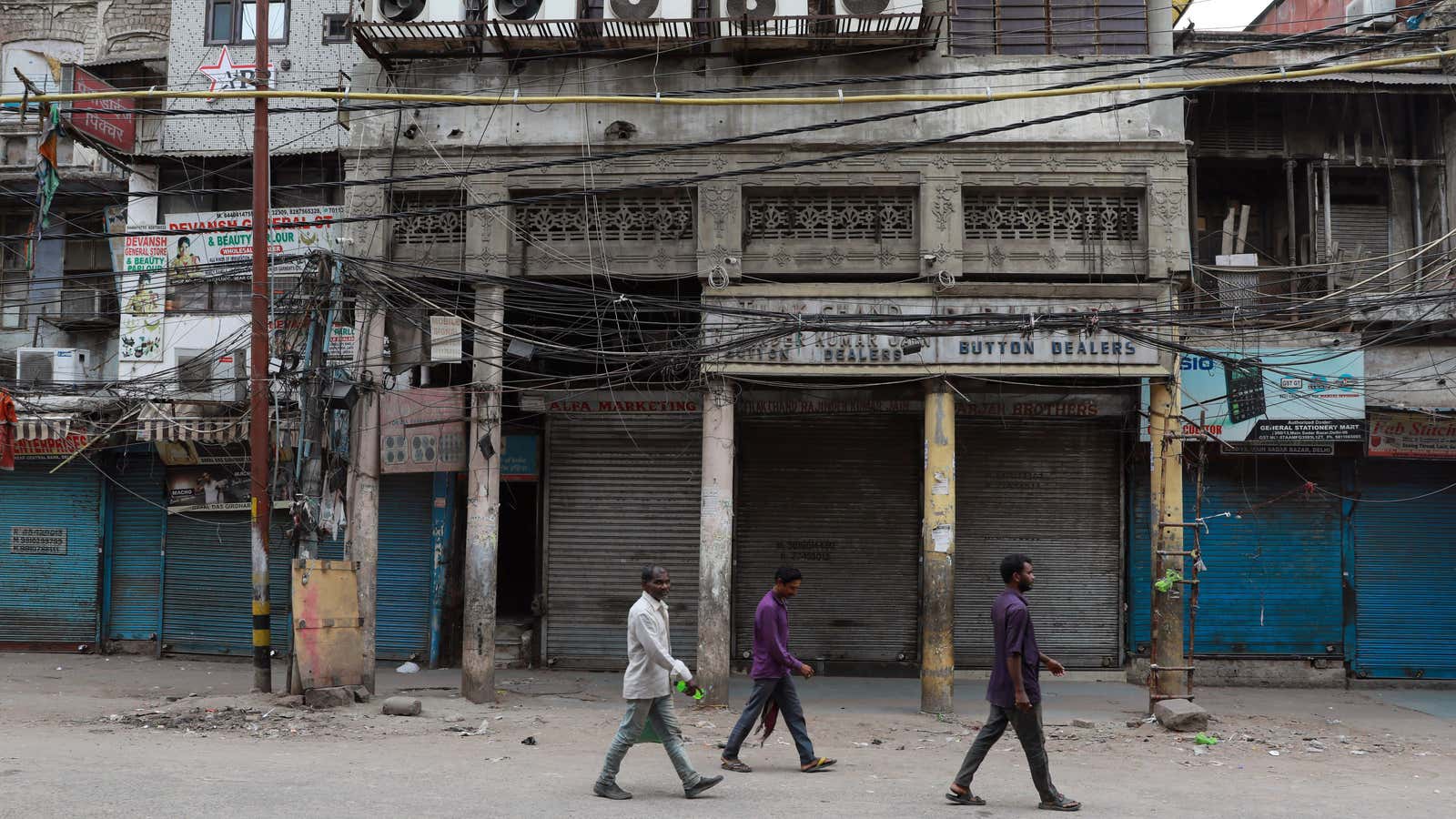Today (May 15) India completes 51 days of the nationwide lockdown to contain Covid-19.
Initially meant to last three weeks, the lockdown has since been extended thrice, as the pandemic showed no signs of abating, especially in cities like Mumbai, Delhi, and Chennai.
Earlier this week, prime minister Narendra Modi hinted at major relaxations from May 18. Reports even suggest that public transport and domestic flights will be resumed even if in a limited way.
As the worst phase of the world’s biggest lockdown seems to be behind us, Quartz takes a look at it in numbers:
Despite the growing numbers, the Modi government, on April 17, insisted that the lockdown has cut the increase of Covid-19 cases by nearly 40%.
“An average growth factor of 1.2 has been observed since April 1 as compared to 2.1 in the two weeks preceding that (March 15 to March 31). This is a 40% decline in growth factor,” Lav Agarwal, joint secretary in India’s ministry of health and family welfare, said last month.
While the lockdown’s effectiveness is debatable, its overall impact has been debilitating. By May 3, the country’s economy had suffered losses of $234.4 billion, according to an estimate by British investment bank Barclays.
It also fanned unemployment. The country’s job loss rate was 27.11% in the week ended May 3, according to the Centre for Monitoring of Indian Economy.
Some of the worst-hit sectors are:
Agriculture, the country’s biggest employer, is struggling. In the southern state of Kerala alone, the sector has lost Rs1,570 crore in the past two months.
Meanwhile, attempts are being made to salvage the whole situation.
On May 13, Modi announced the Rs20 lakh crore Aatmanirbhar Bharat Abhiyan (self-reliant India) stimulus package. It includes credit lines to small businesses, shadow banks, benefits for taxpayers and the salaried class, and regulatory relief for the real estate and construction sectors.
Also part of the package is affordable rental houses for migrant workers and the urban poor, finance minister Nirmala Sitharaman said yesterday.
India also plans to make ration cards portable under a “one nation, one ration card” scheme so that migrant labourers get access to ration, wherever they are in the country.
